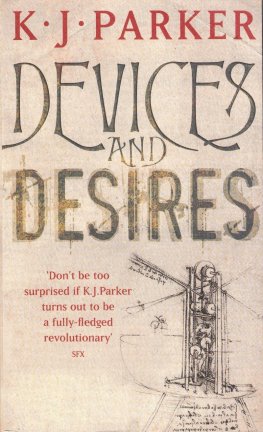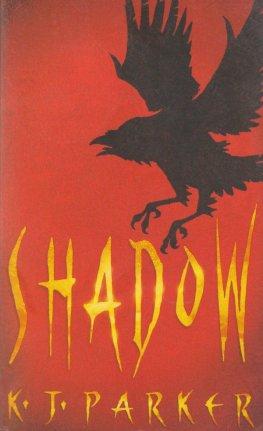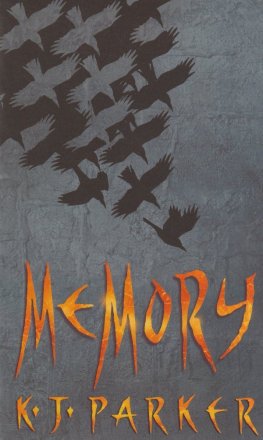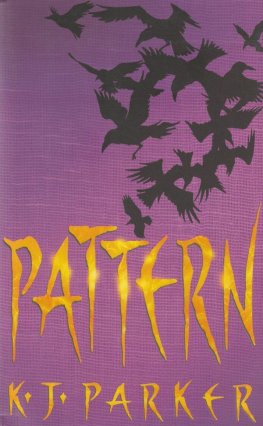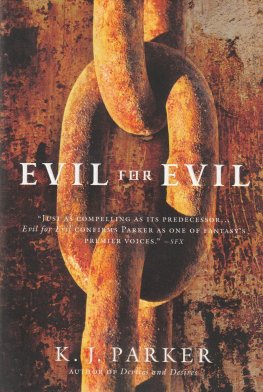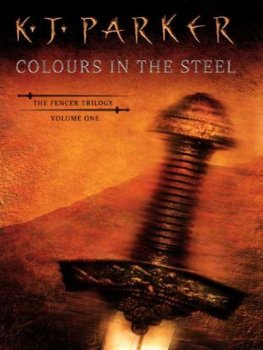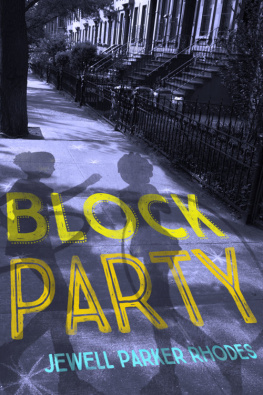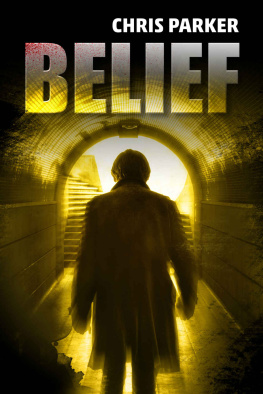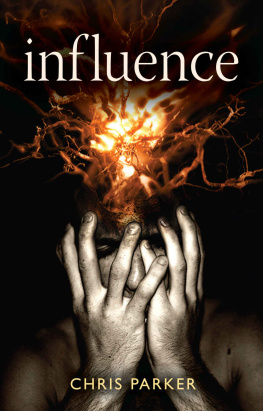K Parker - Devices and Desires
Here you can read online K Parker - Devices and Desires full text of the book (entire story) in english for free. Download pdf and epub, get meaning, cover and reviews about this ebook. genre: Romance novel. Description of the work, (preface) as well as reviews are available. Best literature library LitArk.com created for fans of good reading and offers a wide selection of genres:
Romance novel
Science fiction
Adventure
Detective
Science
History
Home and family
Prose
Art
Politics
Computer
Non-fiction
Religion
Business
Children
Humor
Choose a favorite category and find really read worthwhile books. Enjoy immersion in the world of imagination, feel the emotions of the characters or learn something new for yourself, make an fascinating discovery.
- Book:Devices and Desires
- Author:
- Genre:
- Rating:5 / 5
- Favourites:Add to favourites
- Your mark:
- 100
- 1
- 2
- 3
- 4
- 5
Devices and Desires: summary, description and annotation
We offer to read an annotation, description, summary or preface (depends on what the author of the book "Devices and Desires" wrote himself). If you haven't found the necessary information about the book — write in the comments, we will try to find it.
Devices and Desires — read online for free the complete book (whole text) full work
Below is the text of the book, divided by pages. System saving the place of the last page read, allows you to conveniently read the book "Devices and Desires" online for free, without having to search again every time where you left off. Put a bookmark, and you can go to the page where you finished reading at any time.
Font size:
Interval:
Bookmark:
K J Parker
Devices and Desires
Chapter One
'The quickest way to a man's heart,' said the instructor, 'is proverbially through his stomach. But if you want to get into his brain, I recommend the eye-socket.'
Like a whip cracking, he uncurled his languid slouch into the taut, straight lines of the lunge. His forearm launched from the elbow like an arrow as his front leg plunged forward, and the point of the long, slim sword darted, neat as a component in a machine, through the exact centre of the finger-ring that dangled from a cord tied to the beam.
It was typical of Valens' father that he insisted on his son learning the new fencing; the stock, the tuck, the small-sword and the rapier. It was elegant, refined, difficult, endlessly time-consuming and, of course, useless. A brigandine or even a thick winter coat would turn one of those exquisite points; if you wanted to have any chance of doing useful work, you had to aim for the holes in the face, targets no bigger than an eight-mark coin. Against a farm worker with a hedging tool, you stood no chance whatsoever. But, for ten years, Valens had flounced and stretched up and down a chalk line in a draughty shed that hadn't been cleaned out since it was still a stable. When he could hit the apple, the instructor had hung up a plum, and then a damson. Now he could get the damson nine times out of ten, and so the ring had taken its place. Once he'd mastered that, he wondered what he'd be faced with next. The eye of a darning-needle, probably.
'Better,' the instructor said, as the point of Valens' sword nicked the ring's edge, making it tinkle like a cow-bell. 'Again.'
It was typical of Valens that he suffered through his weekly lesson, face frozen and murder in his heart, always striving to do better even though he knew the whole thing was an exercise in fatuity. Fencing was last lesson but one on a Monday; on Wednesday evening, when he actually had an hour free, he paid one of the guardsmen four marks an hour to teach him basic sword and shield, and another two marks to keep the secret from his father. He was actually quite good at proper fencing, or so the guardsman said; but the tuck had no cutting edge, only a point, so he couldn't slice the grin off the instructor's face with a smart backhand wrap, as he longed to do. Instead, he was tethered to this stupid chalk line, like a grazing goat.
'That'll do,' the instructor said, two dozen lunges later. 'For next week, I want you to practise the hanging guard and the volte.'
Valens dipped his head in a perfunctory nod; the instructor scooped up his armful of swords, unhooked his ring and left the room. It was still raining outside, and he had a quarter of an hour before he had to present himself in the west tower for lute and rebec. Awkwardly-it was too small for him at the best of times, and now his fingers were hot and swollen-he eased the ring off his right index finger and cast around for a bit of string.
Usually, he did much better when the instructor wasn't there, when he was on his own. That was fatuous too, since the whole idea of a sword-fight is that there's someone to fight with. Today, though, he was worse solo than he'd been during the lesson. He lunged again, missed, hit the string, which wrapped itself insultingly round the sword-point. Maybe it was simply too difficult for him.
That thought didn't sit comfortably, so he came at the problem from a different angle. Obviously, he told himself, the reason I can't do it is because it's not difficult enough.
Having freed his sword, he stepped back to a length; then he leaned forward just a little and tapped the ring on its edge, setting it swinging. Then he lunged again.
Six times out of six; enough to prove his point. When the ring swung backwards and forwards, he didn't just have a hole to aim at, he had a line. If he judged the forward allowance right, it was just a simple matter of pointing with the sword as though it was a finger. He steadied the ring until it stopped swinging, stepped back, lunged again and missed. Maybe I should have been a cat, he thought. Cats only lash out at moving objects; if it's still, they can't see it.
He cut the ring off the cord with his small knife and jammed it back on his finger, trapping a little fold of skin. Rebec next; time to stop being a warrior and become an artist. When he was Duke, of course, the finest musicians in the world would bribe his chamberlains for a chance to play while he chatted to his guests or read the day's intelligence reports, ignoring them completely. The son of a powerful, uneducated man has a hard time of it, shouldering the burden of all the advantages his father managed so well without.
An hour of the rebec left his fingertips numb and raw; and then it was time for dinner. That brought back into sharp focus the question he'd been dodging and parrying all day; would she still be there, or had his father sent her back home? If she'd left already-if, while he'd been scanning hexameters and hendecasyllables, stabbing at dangling jewellery and picking at wire, she'd packed up her bags and walked out of his life, possibly for ever-at least he wouldn't have to sit all night at the wrong end of the table, straining to catch a word or two of what she said to someone else. If she was still here He cast up his mental accounts, trying to figure out if he was owed a miracle. On balance, he decided, probably not. According to the holy friars, it took three hundred hours of prayer or five hundred of good works to buy a miracle, and he was at least sixty short on either count. All he could afford out of his accrued merit was a revelatory vision of the Divinity, and he wasn't too bothered about that.
If she was still here.
On the off chance, he went back to his room, pulled off his sweaty, dusty shirt and winnowed through his clothes-chest for a replacement. The black, with silver threads and two gold buttons at the neck, made him look like a jackdaw, so he went for the red, with last year's sleeves (but, duke's son or not, he lived in the mountains; if it came in from outside, it came slowly, on a mule), simply because it was relatively clean and free of holes. Shoes; his father chose his shoes for him, and the fashion was still for poulaines, with their ridiculously long pointy toes. He promised himself that she wouldn't be able to see his feet under the table (besides, she wouldn't still be here), and pulled out his good mantle from the bottom of the chest. It was only civet, but it helped mask the disgraceful length of his neck. A glance in the mirror made him wince, but it was the best he could do.
Sixty hours, he told himself; sixty rotten hours I could've made up easily, if only I'd known.
Protocol demanded that he sit on his father's left at dinner.
Tonight, the important guest was someone he didn't know, although the man's brown skin and high cheekbones made it easy enough to guess where he was from. An ambassador from Mezentia; no wonder his father was preoccupied, waving his hands and smiling (two generations of courtiers had come to harm trying to point out to the Duke that his smile was infinitely more terrifying than his frown), while the little bald brown man nodded politely and picked at his dinner like a starling. One quick look gave Valens all the information he needed about what was going on there. On his own left, the Chancellor was discussing climbing roses with the controller of the mines. So that was all right; he was free to look round without having to talk to anybody.
She was still here. There was a tiny prickle of guilt mixed in with his relief. She was, after all, a hostage. If she hadn't been sent home, it meant that there'd been some last-minute hitch in the treaty negotiations, and the war between the two dukedoms, two centuries old, was still clinging on to life by a thread. Sooner or later, though, the treaty would be signed: peace would end the fighting and the desperate waste of lives and money, heal the country's wounds and bring the conscript farmers and miners back home; peace would take her away from him before he'd even had a chance to talk to her alone. For now, though, the war was still here and so was she.
Font size:
Interval:
Bookmark:
Similar books «Devices and Desires»
Look at similar books to Devices and Desires. We have selected literature similar in name and meaning in the hope of providing readers with more options to find new, interesting, not yet read works.
Discussion, reviews of the book Devices and Desires and just readers' own opinions. Leave your comments, write what you think about the work, its meaning or the main characters. Specify what exactly you liked and what you didn't like, and why you think so.

